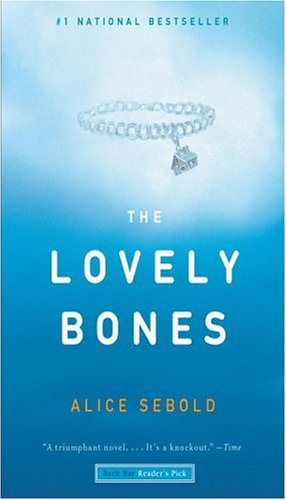 Goodbyes have always been exceptionally hard for me. I'm the kind of person who becomes easily attached to the way things are, the kind of person who clings to what I'm used to, what I've come to know and love. In many ways, I define my past in terms of farewells. I remember saying goodbye to Catholic school and all my friends there when my parents decided to transfer me to public school after third grade. I remember the tearful moment a few years later when my best friend, my almost-sister, told me she was moving halfway across the globe to South Korea. I remember just last year when the girl I told everything to had a strikingly similar conversation with me about her family's imminent move to Georgia. Though saying goodbye hasn't gotten any easier for me over the years, I'm grateful that I've experienced endings enough to know that they aren't absolute, that life goes on and goodbyes aren't necessarily forever.
Goodbyes have always been exceptionally hard for me. I'm the kind of person who becomes easily attached to the way things are, the kind of person who clings to what I'm used to, what I've come to know and love. In many ways, I define my past in terms of farewells. I remember saying goodbye to Catholic school and all my friends there when my parents decided to transfer me to public school after third grade. I remember the tearful moment a few years later when my best friend, my almost-sister, told me she was moving halfway across the globe to South Korea. I remember just last year when the girl I told everything to had a strikingly similar conversation with me about her family's imminent move to Georgia. Though saying goodbye hasn't gotten any easier for me over the years, I'm grateful that I've experienced endings enough to know that they aren't absolute, that life goes on and goodbyes aren't necessarily forever.I've been contemplating this idea of endings a lot lately, which is probably only natural considering the transitional point I'm at in my life. In a few short months, I'll be packing for college, heading off to Amish country, Ohio, where there's nothing but cornfields and foreign faces. I'll have to say goodbye to my family, my friends, my comfy bed. And though I'm frightened, nervous, apprehensive, I've said goodbye enough times before to know that I can handle it.
This theme of endings is also relevant to you. Why, you ask? First of all, because every human being faces a goodbye at some point in their life. Secondly, as senior year comes to a close, I'm saying goodbye to my blog and therefore to you, my readers. Though I may eventually feel compelled to resurrect my blog in order to share my future thoughts on literature and language, as of now, this is my final post.
And so, in the spirit of word-love, I thought I'd leave you all with a list of some of my favorite quotes and excerpts about saying goodbye. I hope that these words of wisdom will be as comforting to you as they've been to me over the years. I've found that there's something about the written word that's reassuring in a way that even human contact cannot quite accomplish. So, without further adieu, here are some bits of language to turn to when you're at a crossroads in your own life.
1. "All the art of living lies in a fine mingling of letting go and holding on." -Henry Ellis
2. "Some things don't last forever, but some things do. Like a good song, or a good book, or a good memory you can take out and unfold in your darkest times, pressing down on the corners and peering in close, hoping you still recognize the person you see there." -Sarah Dessen
3. "Our fingerprints don't fade from the lives we've touched." -Remember Me (2010)
4. "How lucky I am to have something that makes saying goodbye so hard." -Annie
4. "How lucky I am to have something that makes saying goodbye so hard." -Annie
5. "I wanted a perfect ending. Now I've learned, the hard way, that some poems don't rhyme, and some stories don't have a clear beginning, middle, and end. Life is about not knowing, having to change, taking the moment and making the best of it, without knowing what's going to happen next." -Gilda Radner
6. "We must be willing to let go of the life we have planned, so as to accept the life that is waiting for us." -Joseph Campbell
7. "Every exit is an entry somewhere." -Tom Stoppard
8. "When one door closes another door opens; but we often look so long and so regretfully upon the closed door, that we do not see the ones which open for us." -Alexander Graham Bell
9. "Some people come into our lives and quickly go. Others stay awhile, leave footprints on our hearts, and we are never, ever the same." -Flavia Weedn
10. "Don't cry because it's over. Smile because it happened." -Theodor Seuss Geisel





